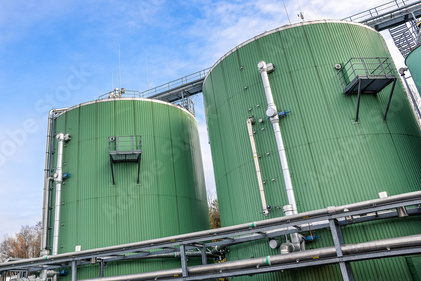
"The good practice is about a complete food cycle whereby a sea resort produces its own fruits and vegetables. The food waste is used in anaerobic digester for energy production and for compost.
Albena, one of the biggest Black sea resorts is environmentally oriented and demonstrates a very good circular approach in hotel chain management. The company has constructed a biogas plant - anaerobic digester for agricultural and kitchen waste, to produce energy with cogeneration - electric and heat. The heat is used for a greenhouse and district heating, where the latter is still in the installation progress). As the next step, the digested material is further used as a liquid fertilizer in the agricultural fields of the company, for the parks and gardens of the resort. At last, the products from the farms go back to the hotel and complete the circle.
From the beginning the practice has helped in many different aspects. It has provided high resource efficiency, good reputation for the company, has saved finances, and has provided quality products. It still has some obstacles with the kitchen waste, but the team is working over the issues.
The main “customers” of the circling products are the hotels in the chain and all other daughter companies. The electricity is sold to the Utility company. Unfortunately, quite often the Utility company rejects complete utilisation of the electricity, and hence, the plant stops producing it. The fertilisers are mostly used in the gardens of the company, but they are also available to the local farmers. Additionally, the municipality is interested in potential cooperation to utilise the municipal waste at the plant. The plant is financially sustainable – it repays the bank loan and generates additional profit. This practice leads to an improved waste management and higher energy independence.
Such practice is possible to be implemented in many agricultural farms, and to be a joint project for smaller producers. It will also provide employment, environmentally friendly energy source, bio fertilizers for agriculture and clean food products.
This practice might be of interest for public authorities as well, because food waste is a major component in the household waste and very difficult to be utilized or disposed of in an environmentally friendly manner. With a good cooperation between local authorities, farmers and SMEs an efficient, win-win project could be established. This project could be based on a similar circular approach to all kinds of organic wastes - food waste, agricultural residues, derbies of wood processing, caning and other types of small industries, using bio materials, for the benefit of all communities."